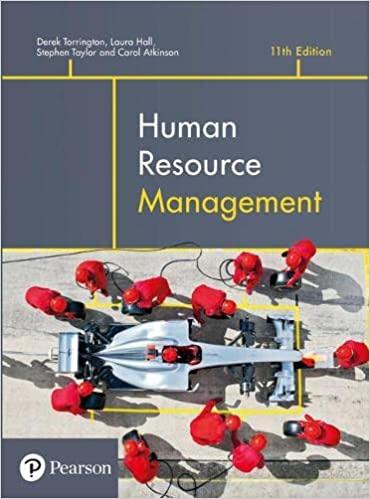In this chapter, we have focused on formal, so-called best practice recruitment methods, while recognising that informal
Question:
In this chapter, we have focused on formal, so-called best practice recruitment methods, while recognising that informal methods are often used. These best practice methods result from research in a largely Western context and are typically presumed to translate unproblematically to other contexts. A growing body of research, however, demonstrates that local context is influential on the operation of HR practices. Horak (2017) has recently examined recruitment in Korea and the extent to which formal practice is adopted. He finds that, in Korea, Yongo, informal social networks, are widely used in recruitment particularly in the private sector. Here, Yongo is widely used in recruitment at senior- and mid-levels in large firms and at all levels in small and medium-sized enterprises (SMEs) to attract applicants to roles. Large firms focus on skills, experience and qualifications for entry-level and also for mid-level, but in the latter, referral systems (hence Yongo) become very influential. Yongo is also of substantial importance in senior-level recruitment. Further, Yongo influences all levels of recruitment in SMEs, which are seen as less attractive employment propositions than large firms and thus reliant on social networks to attract applicants. While large firms aspire to best practice, following international models, this is often mixed with local contextual influences such as Yongo. These are dominant in SMEs, which are less influenced by international approaches. The author concludes that Yongo is likely to have a lasting influence on recruitment methods in Korea. These findings reflects research in other cultural contexts, for example, the use of Wasta in many Arab nations and Guanxi in China (Xian et al. 2017). Best practice approaches, while potentially influential, are likely to be adapted and reflect cultural context in many countries across the world.
Questions
1. Why do large firms in Korea aspire to use formal, best practice recruitment methods? What are the barriers to success in doing this?
2. To what extent are formal, best practice recruitment methods ever likely to be effective for SMEs? How could SMEs develop use of these and reduce reliance on Yongo?
3. To what extent do formal practices dominate in the UK? How influential are informal, social networks in recruitment here?
Step by Step Answer:

Human Resource Management
ISBN: 9781292261645
11th Edition
Authors: Derek Torrington, Laura Hall, Stephen Taylor, Carol Atkinson





